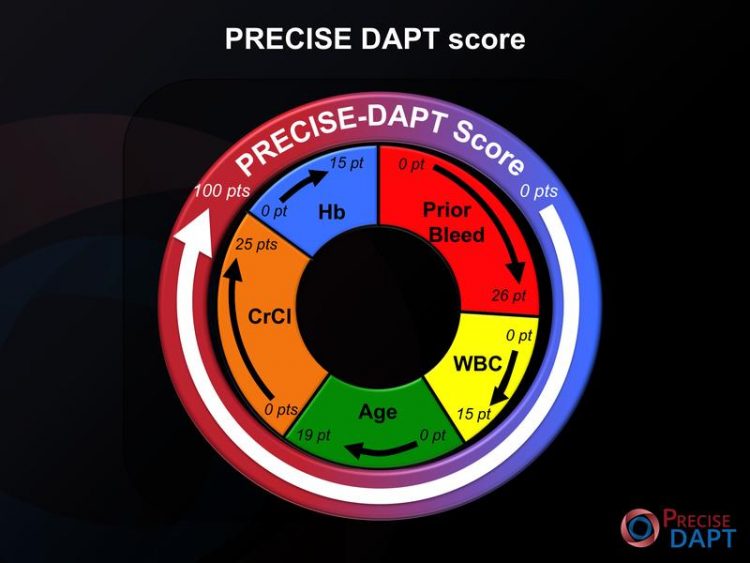Cardiac diseases: when less is more

PRECISE-DAPT Score Department of Cardiology, Inselspital, Bern University Hospital
Spending less time in hospital, having to take less medication after surgery – both are concerns shared by most patients. In a study published this month, the Department of Cardiology of Inselspital addressed this concern.
In accordance with the principle of weighing benefits and risks, upon which all medical treatments are based, it took an in-depth look at medicinal after-care from the patients’ perspective.
After surgery on the coronary arteries, patients routinely receive platelet-inhibiting drugs for approx. one year. This is intended to prevent heart attacks. These drugs, however, may cause bleeding complications in some patients. Until now, doctors have been unable to find out how high the risk of bleeding was for each person.
Personalised after-care thanks to a simple test
In a multicentric study under the direction of Prof. Marco Valgimigli, from the Department of Cardiology of Inselspital, cardiologists have now developed a simple five-part test: This identifies the individual bleeding risk based on the factors of age, kidney function, haemoglobin level, number of white platelets and previous spontaneous bleedings.
In the case of a high risk, the drugs are prescribed for only approx. three months – because this period of time the patient benefits from the protective effect against heart attack, but has no serious side-effects.
People without an increased risk of bleeding, on the other hand, can take the medicinal coronary prophylaxis for longer because, with good protection, they do not have to worry about bleedings.
Contact:
Prof. Dr. med. Marco Valgimigli, Senior Physician, Department of Cardiology, Inselspital, Bern University Hospital, +41 31 632 47 14, marco.valgimigli@insel.ch.
http://thelancet.com/journals/lancet/article/PIIS0140-6736(17)30397-5/fulltext
http://www.precisedaptscore.com
Media Contact
All latest news from the category: Health and Medicine
This subject area encompasses research and studies in the field of human medicine.
Among the wide-ranging list of topics covered here are anesthesiology, anatomy, surgery, human genetics, hygiene and environmental medicine, internal medicine, neurology, pharmacology, physiology, urology and dental medicine.
Newest articles

Compact LCOS Microdisplay with Fast CMOS Backplane
…for High-Speed Light Modulation. Researchers from the Fraunhofer Institute for Photonic Microsystems IPMS, in collaboration with HOLOEYE Photonics AG, have developed a compact LCOS microdisplay with high refresh rates that…

New perspectives for material detection
CRC MARIE enters third funding period: A major success for terahertz research: Scientists at the University of Duisburg-Essen and the Ruhr University Bochum have been researching mobile material detection since…

CD Laboratory at TU Graz Researches New Semiconductor Materials
Using energy- and resource-saving methods, a research team at the Institute of Inorganic Chemistry at TU Graz aims to produce high-quality doped silicon layers for the electronics and solar industries….



